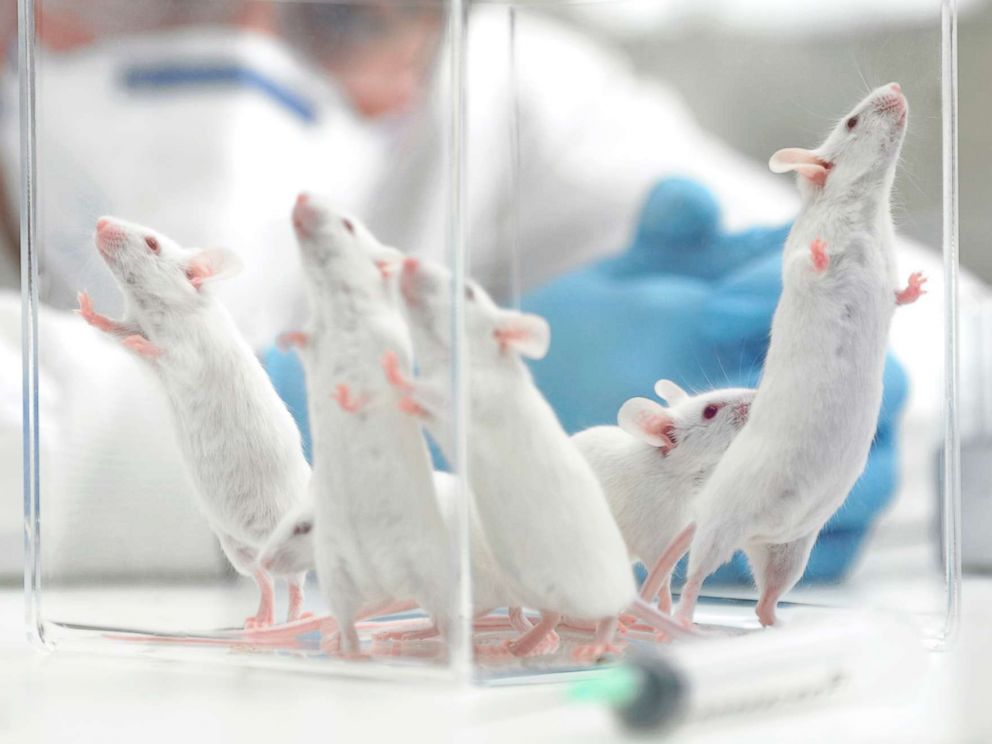Allergy 'vaccine' suppresses the allergic response to peanuts in mice
There may be hope on the horizon for food allergy sufferers.
There may be hope on the horizon for food allergy sufferers in the United States -- at least, those that are mice. Scientists reported on Wednesday that they successfully tested a new allergy "vaccine" in mice with peanut allergies. They hope human trials are in the future.
A potential new therapy for those with allergies, developed at the Mary H. Weiser Food Allergy Center at the University of Michigan, "tricks" the immune system into responding to exposure to an allergen, like peanuts, with a different immune system pathway than the body’s typical allergic response -- and this pathway can actually prevent the activation of cells that would cause allergic reactions.
What happened when it was tested in mice?
For three months, mice with peanut allergies were given tiny amounts of peanut linked to a substance which triggers the "safe" pathway, essentially training the immune system to change its response to peanuts. After receiving all of the vaccine doses, the mice were again exposed to peanuts.
Mice not given the vaccine responded with allergy symptoms similar to humans -- from scratching and puffiness of the face to difficulty breathing and passing out -- but the mice who received the vaccine treatment had mild or no symptoms.

Current approach to food allergies
An allergic response is an overreaction of the person’s own immune system against a food or other substance. It gets wrongly recognized by the body's immune system as a dangerous invader, even though it’s harmless. This sort of reaction typically happens when a person's body reacts incorrectly to things like pollen, dust, pet dander, and peanuts. The substances triggering an allergic reaction are known as allergens.
This causes a chain reaction involving antibodies made by white blood cells and substances, like histamine and cytokines, which tell the body that something is wrong. As a result, the body will exhibit symptoms like rash, itching, watery eyes, and nausea. The most severe version of this response is anaphylaxis, a life-threatening reaction which involves difficulty breathing and low blood pressure.
Currently, people with food allergies can try immunotherapy, called “desensitization therapy,” receiving small doses of the allergen weekly or monthly. The therapy may be given for several years, hoping that the body will “get used to” the allergen and understand it’s not a threat. It isn’t always successful, and people at high risk for dangerous allergic reactions generally aren’t advised to try it.
What’s next
"We're changing the way the immune cells respond upon exposure to allergens," Jessica O’Konek, Ph.D., lead author of the study, said in a press release. “Importantly, we can do this after allergy is established, which provides for potential therapy of allergies in humans."
The next step is to evaluate just how long the protection from allergic responses lasts after this therapy is given. The researchers will also do more studies in mice to better understand the mechanisms of various responses to allergens and the consequences of re-routing this response. Afterward, they hope to perform trials of the “allergy vaccine” in humans. But that’s some time away.
"This research is also teaching us more about how food allergies develop," Dr. James Baker Jr., senior author of the study, said in a press release, "and the science behind what needs to change in the immune system to treat them."
Dr. Kelly Arps is a resident physician in internal medicine at Johns Hopkins Hospital. Kelly is working with the ABC News Medical Unit.




